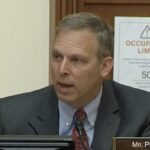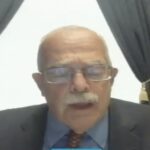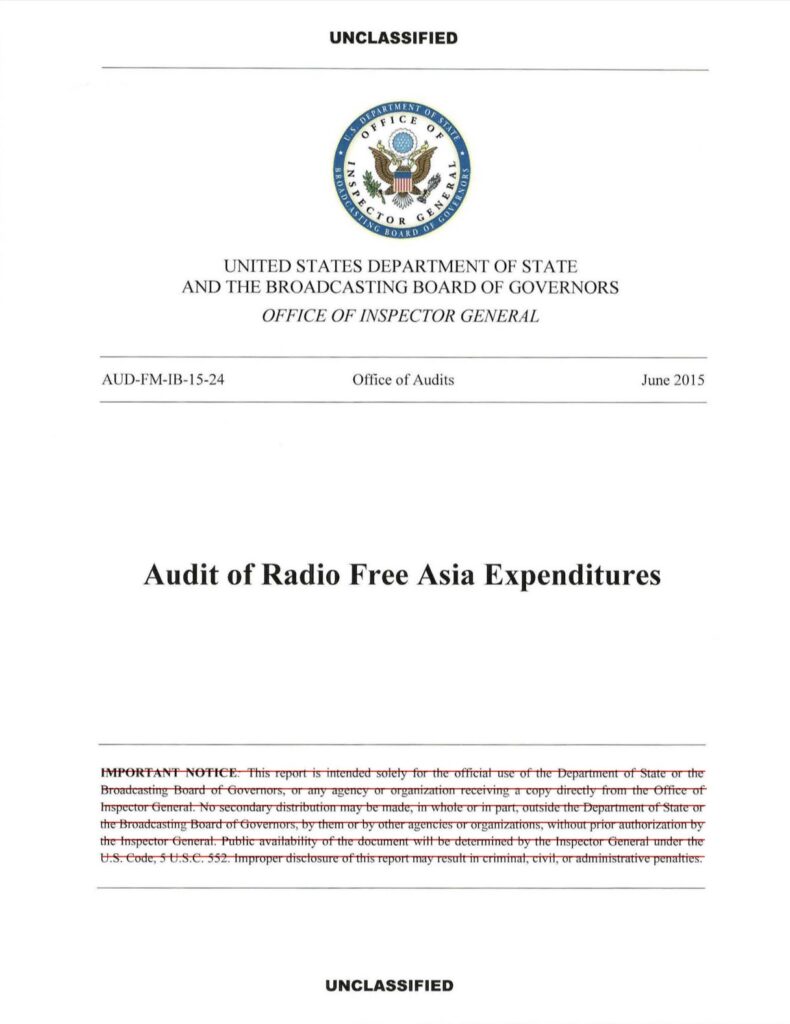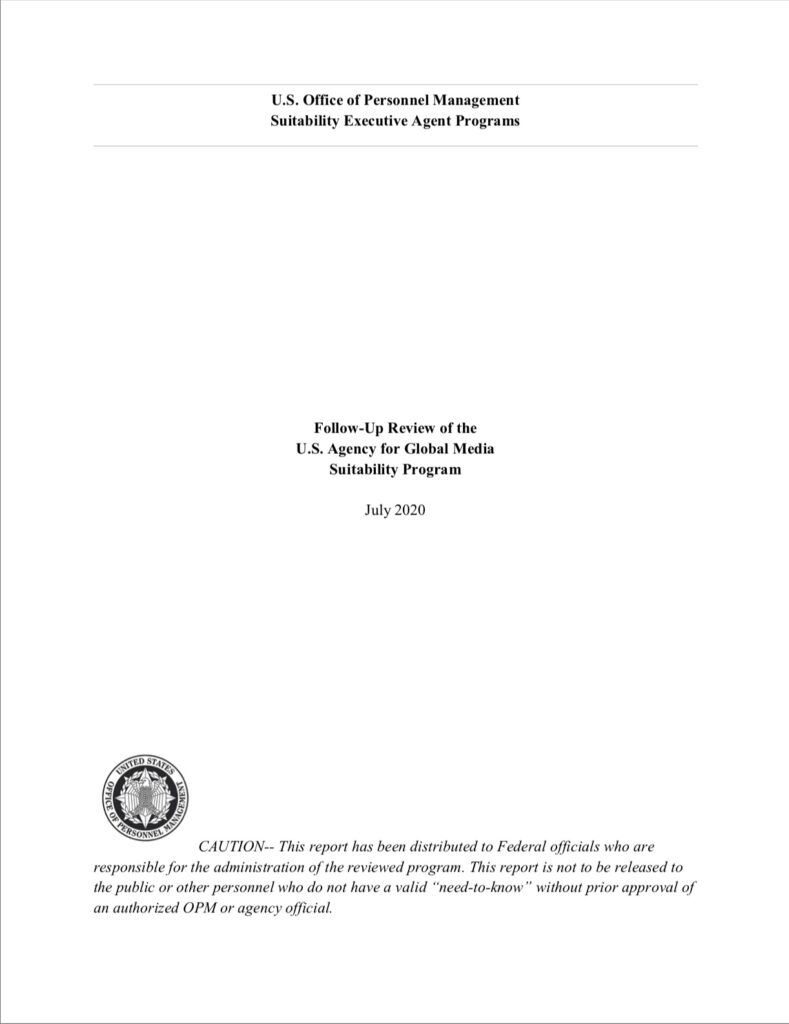Rep. Scott Perry Criticized USAGM and OTF for Mismanagement and Security Breaches
USAGM Watch Commentary
The House Foreign Affairs Committee held a hearing On September 24, 2020 to examine the U.S. Agency for Global Media (USAGM) and actions taken regarding operations at Voice of America (VOA), the Open Technology Fund (OTF) and other USAGM media entities. While outgoing House Foreign Affairs Committee Chairman Rep. Eliot Engel (D-NY) who had lost a recent primary election and will be stepping down in January 2021, and most other committee members criticized USAGM CEO Michael Pack, he was defended by Rep. Scott Perry (R-PA) for carrying out reforms at the agency.
Rep. Perry accused former agency executives of mismanagement and allowing security breaches. Congressman Scott Perry sits on the U.S. House Committees on Transportation & Infrastructure, and Foreign Affairs. After serving in his final military position as Assistant Adjutant General, Pennsylvania National Guard, Perry retired at the rank of Brigadier General after nearly 40 years in uniform.
Rep. Engel said that contrary to what was said by Rep. Perry, Mr. Pack had proposed alternative dates for his appearance in October when the House of Representatives would be in recess. Open Technology Fund board member, former USAGM Board member and former U.S. Ambassador Karen Kornbluh, said that Rep. Perry was wrong in his criticism of security breaches and extravagant spending at OTF. “I believe that the congressman has been misinformed,” Kornbluh said. She added that “The security claims are just not true.”
For more criticism of Michael Pack by House Foreign Affairs Committee members and witnesses, see Voice of America report “Lawmakers Criticize Trump Administration Changes at US-funded Media Networks.”

Rep. Scott Perry: Thank you, Mr. Chairman. I would tell you I wouldn’t know Mr. Pack if he was standing right in front of me, and this seem like a pretty substantial hit job on him and his actions, et cetera, et cetera. But I want to point out some things that apparently aren’t going to be pointed out by anybody else here. Last year, a former chief strategy officer for the agency working closely with the former CEO of USAGM went to prison for stealing nearly 40,000 dollars during his tenure. In 2018, a reporter and a cameraman faked a mortar attack in Nicaragua. That’s interesting reporting. In the fall of 2018, the Voice of America fired 15 of its employees after discovering they were accepting bribes from a Nigerian official. Wonderful. The Hoover Institution released a report citing concerns on China’s influence on American institutions, including China’s charm offensive on agencies like the VOA and the CCP’s proclivity to otherwise threaten VOA reporters and their families. I’ll bet we love to hear that’s going on. In late 2018, the House Foreign Affairs Committee, this very committee, this committee with these people on it, said the USAGM was a broken agency. But I guess, according to what we’re hearing today, we should just let it go, just let it continue. Former Secretary Clinton described USAGM as practically defunct in its capacity to tell a message around the world. Glad we’re paying for that. When Mr. Pack went to investigate the Open Technology Fund at their DC location, his employees found laptops and hard drives left unsecured in boxes. An internal door connecting the Open Technology Fund organization with other entities in the building complex wasn’t only unlocked, it was wide open. I suspect that the Russians, the Chinese, the Iranians, the North Koreans, none of them have any interest in trying to get what might be in those computers. China, Russia and other adversaries are constantly trying to hack U.S. agencies. This discovery wasn’t a great look for the OTF. Apparently the OTF has also been holding meetings on ZOOM calls. Well, that’s sounds pretty secure to me as an individual who has been privileged and honored to hold a top secret security clearance for about 35 years in the U.S. military.
Mr. Chairman, I want to enter for the record a letter from Mr. Pack to you, where he says that his staff proposed eight days within the month of September when they could appear.
No objection.
Thank you, sir.
Mr. Chairman, this committee respects the importance of media independence. Media freedom is absolutely essential to any functioning civil society. We are aware and familiar with the firewall put in place to protect journalists working at USAGM and its subdivisions from political interference. We all support such protections for our journalists and reporters.Highlighting some of the issues will shed light as to why Mr. Pack was confirmed by the U.S. Senate to his current role and the charge that is now before him to reform the agency. Let’s start off with the newly released report from the Office of Personnel Management detailing USAGM’s poor vetting practices for its employees. 1,500 USAGM employees and contractors between 2010 and 2020 — that’s right now in case anybody is wondering — 40 percent of the agency’s workforce were not properly vetted before being hired. I don’t know, who should Mr. Pack look for accountability there? Should he look towards us sitting up here? I don’t know. I would think it would be the people running the agency. According to Real Clear Politics, the agency cleared hundreds of employees and contractors to work for the U.S. government, many from authoritarian nations the U.S. considers adversaries. These unvetted employees maintain access to USAGM broadcasting platforms and tools, government buildings, IT systems, and senior government officials. Oh, I wonder why this agency is incompetent and ineffective and inept. I wonder why. I have no idea. The reforms undertaken by Mr. Pack have undergone a significant amount of public scrutiny, as they should. But USAGM’s poor vetting procedures over those last decades continue to threaten U.S. national security and it’s entirely the fault of those who mismanaged the process, whoever that is. Both USAGM and the State Department employees have said that the OTF’s budget can be broken down into two parts. Approximately 25 percent of it is spent on technology tools that facilitate its mission to break through barriers of authoritarian technology control — 25 percent, and I’ll conclude, Mr. Chairman. The other 75 percent is dedicated to extravagant conferences at popular resort spots, extremely generous salaries, benefits and redundant projects already being undertaken at other agencies. I don’t know what’s going on here, but I’m not ready to blame Mr. Pack for everything. He should be allowed to come here. We should work collaboratively instead of the road show and the circus that is going on right now in this committee. And I thank you, Mr. Chairman.
Rep. Gerald Connally (D-VA) accused Michael Pack carrying out “a total purge and the dismantlement of programs.” Pack replaced board members at various USAGM entities and placed a few senior USAGM executives on administrative leave. He did not dismantle any broadcasts or online programs but did withhold some of the money from the Open Technology Fund. He claims that OTF failed to provide him with full information on how money from USAGM was being spent on censorship avoidance technology and said that USAGM would manage these projects on its own. OTF does not produce any information programs for audiences abroad.
Rep. Gerald Connolly: Thank you, Mr. Chairman. There is a fallacy in the logic of my friend who just spoke in positing that there were a series of problems over the last ten or 20 years and that’s why we had to have a total purge and the dismantlement of programs that in fact are effective, reach audiences and propound the democratic point of view in authoritarian societies. That is false logic. If there are problems, you clean them up. You don’t dismantle and purge the organization. And that is what we’re talking about. If the actions Mr. Perry says are justifiable, I would assume Mr. Pack would run, not walk, to this hearing to propound his philosophy and defend his actions, and explain them. His actions speak volumes about the fact that a) he doesn’t believe apparently in his own accountability while justifying his purges as an active accountability for others, and he apparently he doesn’t have confidence in his own actions, so called “reforms,” to come before the committee to justify them.
Ms. Kornbluh, I was blow over by your testimony because you have enumerated the actual consequences of the actions undertaken by Mr. Pack on the wide swath of the world in terms of programs. Is is your view that while painful what Mr. Pack is doing is just cleaning up problems that were ignored by predecessors? And is it your view what my friend from Pennsylvania wants us to believe that the organization is just replete with people who are partying on the taxpayer dime and being callous about their computers and frankly being ineffectual in their work. Is that fair in your view?
Open Technology Fund chair Karen Kornbluh denied claims of waste and mismanagement at OTF.
Karen Kornbluh: Thank you so much for giving me a chance to respond. It’s hard not to be emotional about this because the team at OTF is a small team, there are ten people. They have voluntarily taken a pay cut under the financial pressure the agency is in because they care so much about the mission of vulnerable journalists, human rights activists and ordinary people around the world using their tools and services. I would love to submit for the record fuller responses, but needless to say I believe that the Congressman [Rep. Scott Perry] has been misinformed. The security claims are just not true. We only have information on hard drives. We don’t use ZOOM. 90 percent of the funding is used for programming, for technology. There are no $2 million in conferences. I think that must be a problem with somebody reading some numbers. In the past we spent $200,000 on bringing together civil society groups, but nothing like 2 million, and with the epidemic not at all. So those claims unfortunately are not true.
In 2015, the Office of Inspector General (OIG) conducted an audit of Radio Free Asia (RFA) expenditures which covered funding and management of the Office of Open Technology (OTF). The audit identified instances of noncompliance with Office of Management and Budget (OMB) conflict-of-interest requirements.
OIG was unable to determine the extent to which RFA used OTF resources to accomplish program priorities (such as BBG’s strategies and policies) because BBG did not provide sufficient guidance to RFA describing BBG’s OTF strategies or program priorities. As a result, BBG could not be sure that RFA used OTF funds to achieve BBG’s overall goals for the program. OIG also found that RFA did not fully comply with Federal procurement requirements for grantees or its own internal procurement process. Specifically, OIG identified instances of noncompliance with Office of Management and Budget (OMB) conflict-of-interest requirements. In addition, RFA did not sufficiently document its justification for the lack of competition in the OTF procurement process, and none of the contracts tested had independent cost estimates. Further, RFA did not comply with its internal OTF procurement process. For example, for five of six contracts tested, RFA funded the OTF projects even though RFA Advisory Council members did not recommend the awards. These exceptions occurred, in part, because RFA had not developed and implemented a sufficient procurement policy and procedures for awarding OTF contracts. In addition, the process used by RFA for selecting projects was not adequate. As a result, there was no assurance that RFA received fair value for the contracts awarded to support OTF projects.
On August 4, 2020, USAGM CEO Michael Pack released a report that revealed “severe and systemic security failures at the agency, many of which have persisted for years.” The report was produced by the U.S. Office of Personnel Management’s (OPM) Suitability Executive Agent Programs, which conducts program reviews of Executive Branch agencies’ personnel suitability and vetting programs.






